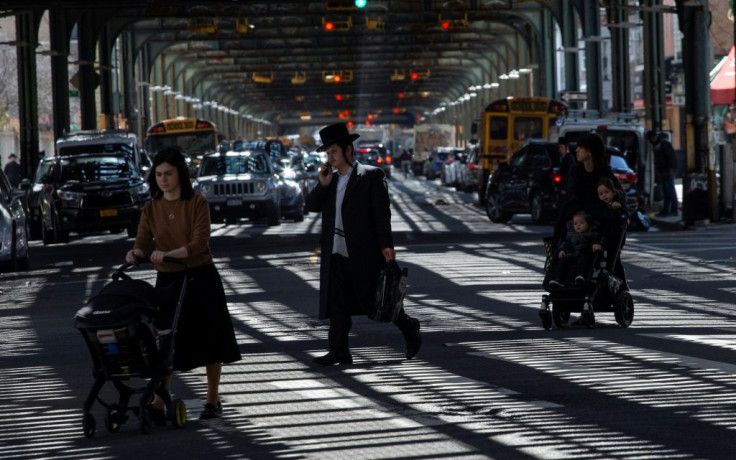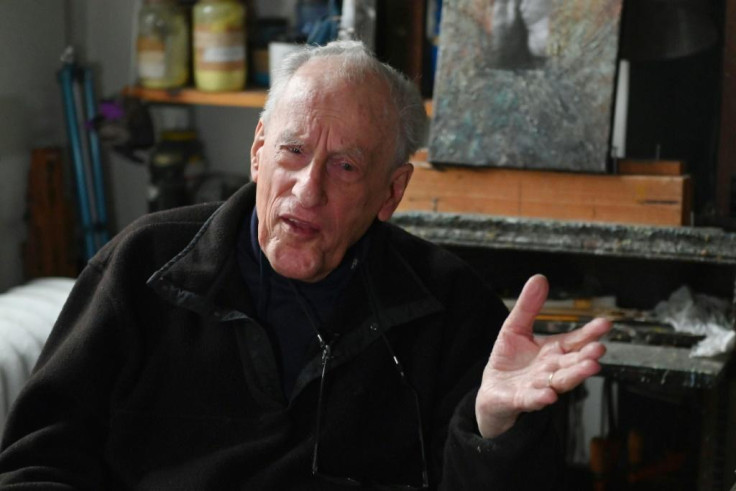Antisemetic Incidents in US Reached All-Time High In 2021

The Antidefamation League on Tuesday released an audit on antisemitic hate crimes for 2021 that revealed a significant spike in incidents year-over-year from when the ADL first began tracking in 1979.
The annual "Audit of Antisemitic Incidents" recorded 2,717 incidents of assault, harassment, and vandalism reported to the ADL, with an average of seven incidents per day which is a 34% increase year over year. Assaults increased by 167% in 2021, with 88 reports recorded and 131 victims, but no fatalities even though 11 of these assaults involved deadly weapons.
Out of the incidents of antisemitism in 2021, 18% of them, or 484, resulted from domestic extremism.
While the reasons for the spike are unclear, ADL CEO and National Director Jonathan Greenblatt said that "we do know that Jews are experiencing more antisemitic incidents than we have in this country in at least 40 years, and that’s a deeply troubling indicator of larger societal fissures."
Out of the total number of incidents, 1,776 of these incidents were defined as harassment, which includes the use of slurs, stereotypes, or conspiracy theories, which is a rise of 43% from 2020. Acts of vandalism damaged 853 properties with antisemitic intent, which represents a rise of 14% compared to 2020. For 578 of these vandalism incidents, which represented two-thirds of the total, swastikas were present.
The audit recorded 525 attacks on Jewish institutions in the report, with attacks on Jewish community centers and synagogues up 61%, attacks on college campuses up 21%, and incidents at K-12 institutions up 106%. In total, 413 of these incidents were recorded as harassment, 101 as incidents of vandalism, and 11 were reported assaults.
The audit also highlighted a surge that occurred in May 2021 during a volatile point in the ongoing conflict between Israel and Palestine. In May 2021, the Israeli Defense Force were engaged in military conflict with Hamas and the Palestinian Islamic Jihad over the continued eviction of Palestinian families from Sheikh Jarrah.
The conflict began on May 10 with Palestinian civilians incurring most of the damage over the 11 days. Ninety-four buildings in Gaza were destroyed and 256 Palestinians, including 66 children, were killed along with 13 Israelis.
Amid the fighting, the ADL recorded a 148% increase in reports of antisemitic incidents in the U.S. compared to May 2020. As many as 387 incidents occurred, which were reported to the ADL, and 297 incidents of those incidents occurred on the day the conflict started.
In 2021, 484 incidents of antisemitism referenced Israel or Zionism, 68% of these were a result of white supremacist propaganda efforts, which have increased 52% year over year and are responsible for 422 antisemitic propaganda distributions.
Greenblatt said that while rising tensions between Israel, Hamas, and PIJ usually result in an increase in antisemitic violence in the U.S. He said "the violence we witnessed in America during the conflict last May was shocking."
"Jews were being attacked in the streets for no other reason than the fact that they were Jewish, and it seemed as if the working assumption was that if you were Jewish, you were blameworthy for what was happening half a world away," Greenblatt said.
Still, the crisis between Israel, Hamas, and PIJ in May 2021 did not represent most of the violence that occurred against Jewish Americans in 2021. The ADL also reported spikes in violence without a defined cause in November and December.
"When it comes to antisemitic activity in America, you cannot point to any single ideology or belief system, and in many cases, we simply don’t know the motivation," Greenblatt explained.

Holocaust survivor Frederick Terna says he is "very, very worried" about the return of anti-Semitism and "narrow nationalism" which remind him of growing up in Prague in the 1930s Photo: AFP / Angela Weiss





















